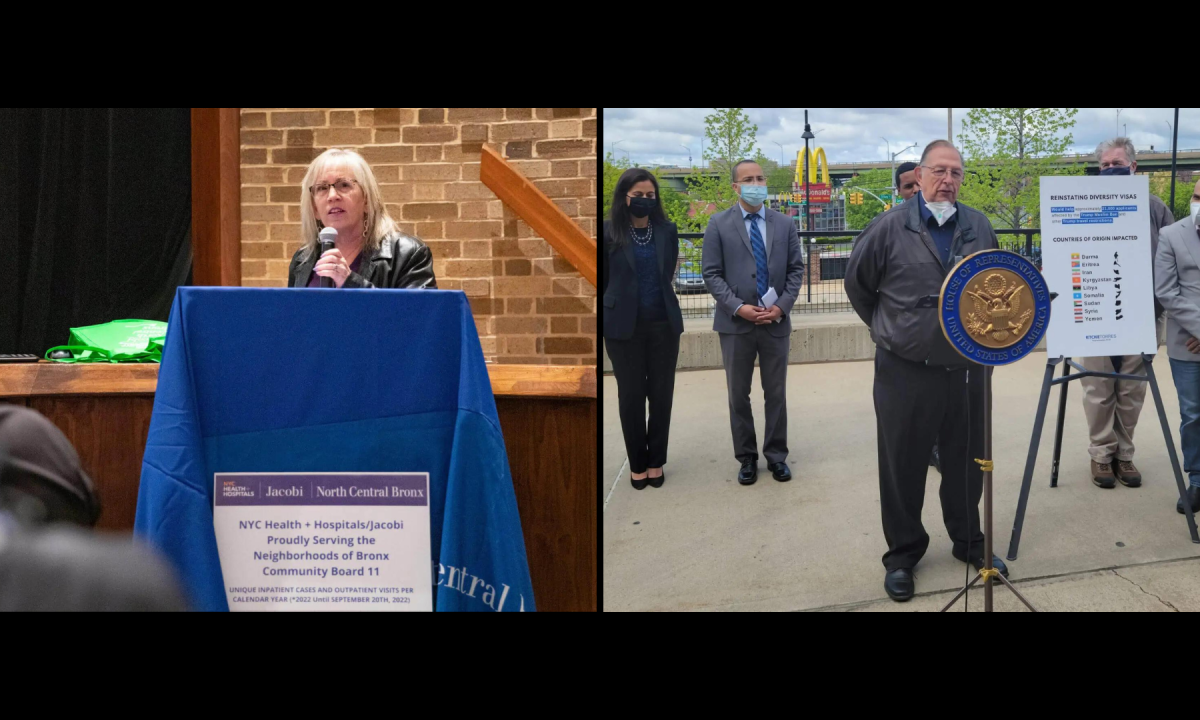Under President Donald Trump’s administration, the White House has become a revolving door of politicians, military personnel and millionaires who either chose to leave or were pushed out.
Though Trump has only been in office for nearly seven months, his administration has seen myriad shakeups, including the firing of chief strategist Steve Bannon, the resignation of former national security advisor retired Lt. Gen. Michael Flynn, the firing of former Manhattan U.S. Attorney Preet Bharara, and the 10-day tenure of former White House communications director Anthony Scaramucci.
Scroll down for a timeline of the Trump staffers who have been fired or quit since the president’s inauguration in January.
Steve Bannon
Steve Bannon was fired from his role as White House chief strategist on Aug. 18, 2017. White House spokeswoman Sarah Sanders confirmed Bannon’s ouster, saying, “We are grateful for his service and wish him the best.” The decision came as the president faces backlash over his response to a rally by white nationalists in Charlottesville, Virginia, over the weekend. During a news conference at Trump Tower on Aug. 15, Trump had said he was unsure if he would keep Bannon as an adviser: “We’ll see what happens with Mr. Bannon.”
Anthony Scaramucci
Like a shooting star, Anthony Scaramucci’s time in the White House as communications director was both dazzling and brief. Brought in to replace Michael Dubke, who left in May, Scaramucci spent a total of 10 days in his position before he was removed on July 31. The White House also saw the resignation of press secretary Sean Spicer and chief of staff Reince Priebus during Scaramucci’s tenure. He was fired on the first day of work for Trump’s new chief of staff, retired Marine Corps Gen. John Kelly, who sources said ordered his ouster amid backlash over what Scaramucci ranted about Priebus in an article published by the New Yorker.
Reince Priebus
A supporter of Trump from the days of his campaign, Reince Priebus left his position as White House chief of staff after six months of service on July 28. The move was announced by Trump on Twitter in a series of tweets that also seamlessly replaced Priebus with Kelly. He told CNN it was “time to hit the reset button” and that Trump was looking to do something different, but a source close to Priebus said the former Republican National Committee chairman turned in his resignation after Scaramucci’s rant against him was published.
Sean Spicer
In the words of the “Saturday Night Live” writers: “Spicey out.” Sean Spicer resigned as press secretary on July 21, after Trump announced that Scaramucci would be taking over the role of communications director. Spicer had been handling the responsibilities of both communications director and press secretary since Dubke’s resignation, but after he found out about Scaramucci’s hiring, a source said he did not want to stay on under the terms and conditions described to him and quit. Though Spicer resigned, he agreed to stay in his role through the end of August.
Michael Dubke
Citing “personal” reasons in a note to colleagues, Michael Dubke resigned from the position of White House communications director on May 30, The New York Times reported. Dubke, who tendered his resignation on May 18 but agreed to stay on through the president’s first trip abroad, was only in the position for about three months, according to the Washington Post. He had been tapped for the job in mid-February, just weeks after Trump took office, per the Washington Post, and his final day in the position was June 2.
Walter M. Shaub Jr.
The former director of the Office of Government Ethics was known to butt heads with the Trump administration before he resigned on July 6, The New York Times reported. Walter Shaub was in the fourth year of a five-year term when he left. “There isn’t much more I could accomplish at the Office of Government Ethics, given the current situation,” Shaub told the Times after he announced his resignation.
James Comey
In a move that stunned Washington, Trump fired James Comey on May 9 while the former FBI director was investigating whether the president’s 2016 election campaign colluded with Russia. The move quickly drew comparisons to former President Richard Nixon’s firing of a special prosecutor investigating the Watergate scandal in 1973 and eventually led to Comey publicly testifying before the Senate Intelligence Committee, which is also investigation whether Trump’s campaign has any ties with Russia.
Michael Flynn
Just weeks after Trump took office, White House national security adviser Michael Flynn was forced to step down from the position after reports began to swirl that he discussed sanctions with Russia’s ambassador to the U.S., Sergey Kislyak, before Trump took office. Flynn said the reason for his resignation was because he misled Vice President Mike Pence regarding what was talked about during the phone call with Kislyak. In May, Flynn declined to comply with a subpoena from the Senate Intelligence Committee and its Trump-Russia investigation. The retired lieutenant general invoked his Fifth Amendment, according to a letter to the Senate committee from his attorney.
Sally Yates
Former Acting U.S. Attorney General Sally Yates was fired by Trump on Jan. 30, after she refused to enforce his first travel ban executive order. Yates, who was just days away from being replaced by Trump’s appointee Jeff Sessions, said she wouldn’t defend the order against court challenges because she didn’t believe it would be “consistent with this institution’s solemn obligation to always seek justice and stand for what is right.”
Preet Bharara
Former Manhattan U.S. Attorney Preet Bharara was fired by Trump after he refused to step down from his position. Shortly after winning the election in November, Trump had held a meeting with Bharara in which the attorney said he was asked to stay on in his role despite the impending transfer of presidential power. But Trump apparently changed his mind after he took office. U.S. Attorney General Jeff Sessions demanded Bharara’s resignation along with 45 other federal prosecutors on March 10. And when Bharara refused, he was fired a day later.
Katie Walsh
Trump’s choice for White House deputy chief of staff, Katie Walsh, left the position after only two months. But unlike many of the other staffers who have left over the past six months, Walsh’s decision was in an effort to bolster Trump, just in another capacity. Walsh resigned around March 30 in order to take a position with pro-Trump group outside of the federal government, the Washington Post reported.
With Reuters
















